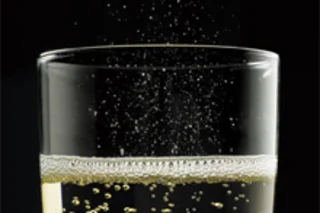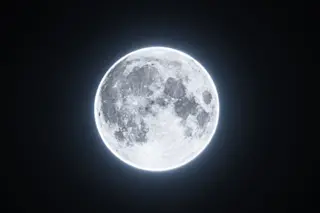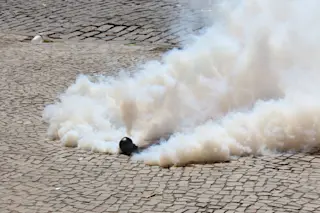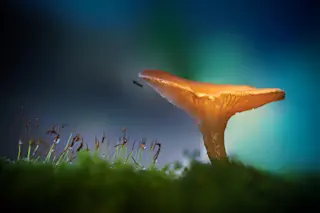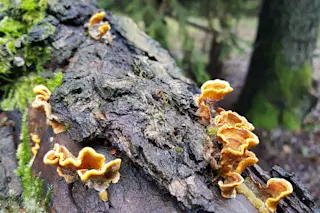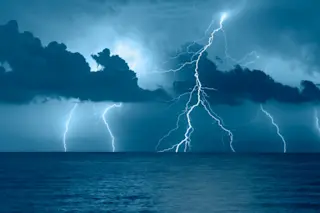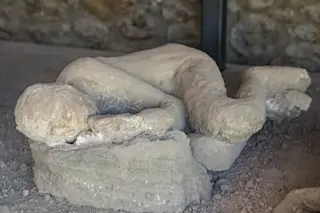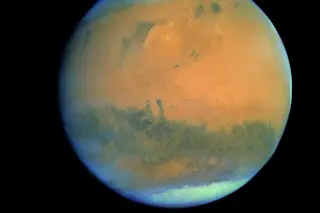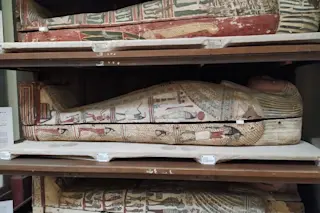Scientists have found another reason why the fizz in a glass of champagne is so important: Besides tickling the tongue and pleasing the eye, the bubbles also release aromatic compounds that they've dragged up from the liquid in the glass. A new study found that concentrations of certain chemical compounds are higher in the air just above the glass than in the actual champagne. Wine expert Jamie Goode comments:
"In the past, we thought that the carbon dioxide in the bubbles just gave the wine an acidic bite and a little tingle on the tongue, but this study shows that it is much more than this" [BBC News].
Smelling the chemical compounds enhances the overall flavor of the champagne, researchers say. The phenomenon of the champagne bubbles is similar to the process that takes place at the seashore, where
compounds called surfactants are dragged along with bubbles in the waves. ...


